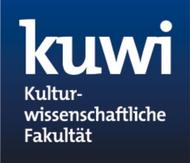Educating AI developers to prevent harmful path dependency in AI resort-to-force decision making
Hier kommt die Zusammenfassung...
The integration of AI technology into resort-to-force decision making would give machines influence over decisions determining the life or death of countless people. Despite this prospective impact on entire societies, many AI developers have only a rudimentary ethical understanding of their AI. Moreover, if AI development is ethically unreflective, minor flaws can spiral into harmful machine-made decisions. So how can we ensure responsible military AI development, especially in the context of AI-supported decision making on the resort to force? We argue that harmful ‘path dependencies’ of AI systems can only be avoided by providing developers with clear training on ethical and developmental issues arising during the AI lifecycle. Based on lessons from applied human systems exploration, we introduce an educational regime: ‘10 pillars of responsible AI development.’ Each pillar is broken down into detailed questions, helping developers reflect on their decisions throughout the AI lifecycle. This article is thereby situated between political science, normative theory, and computer science and contributes to this collection’s treatment of the risks of integrating AI technology into resort-to-force decision making by focusing on the AI development process itself, particularly on the role of developers.
Zurück

Beitrag teilen: